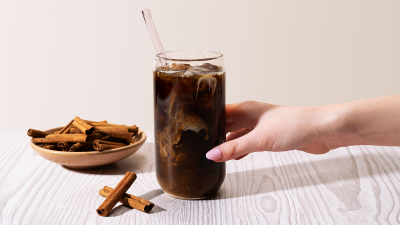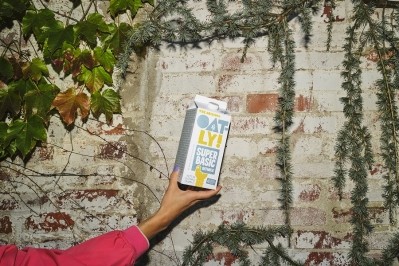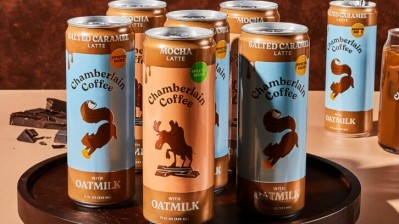Intelligentsia reformulates its RTD oat milk lattes without Oatly to lower costs, streamline its supply chain

It also is expanding its line-up with the introduction of a RTD Vanilla Oat Latte, which along with the reformulated Oat Latte and Spiced Oat Latte are available on their own or in a variety three-pack for $14 or a 12-pack for $48.
“The RTD space is wildly competitive and sensory quality is expensive to manufacture," he explained. "We worked specifically on the formula of oat milk to meet our sensory expectations and have more control over the balance of flavors as they work alongside the espresso.”
The company is also repackaging its RTD cold coffee in an 8-ounce can, rather than in the Tetra Pak in which it originally launched in 2021. However, the RTD oat lattes are packaged in Tetra Pak bottles, which Manson said preserve the sensory and quality attributes of the coffee.
Intelligentsia’s flash chilled method is designed to preserve the concentrate’s chocolate, caramel and fruity flavors and to provide a more balanced brew without losing flavor and functionality. Before packaging, the coffee is brewed in hot water to extract more flavor and balance acidity and then quickly chilled to maintain its flavor profile and minimize degradation.
As a third-wave coffee pioneer that sources high quality coffee, Intelligentsia develops specialty coffees from its Direct Trade sourcing model that opened opportunities for thousands of smallholder coffee farmers around the world, according to the company.
Cold coffee versus cold brew
While cold brew—which requires coffee to be steeped in cold water overnight—is still popular among consumers, Manson explained that the process “results in an inferior balance of flavors.”
He explained, “You lose a lot of the complexity in specialty coffees brewing this way. Iced coffee has similar challenges. If you are not brewing iced coffee to a specific concentrate ratio to take into account dilution of ice, you end up with a watery, unbalanced brew."
Manson continued, “Cold coffee is completely different. We are brewing coffee with hot water to extract the optimal flavor, balance and acidity we expect and then stopping the brew process there with flash chill. So you get all the benefits of brewing a fresh cup, but the sensory delight and convenience of drinking cold coffee.”
Using the brand’s Black Cat espresso concentrate, Manson noted that building the RTD lattes off of its existing concentrate “further allows us to control the quality and expectations as they present in bottled format.”





















